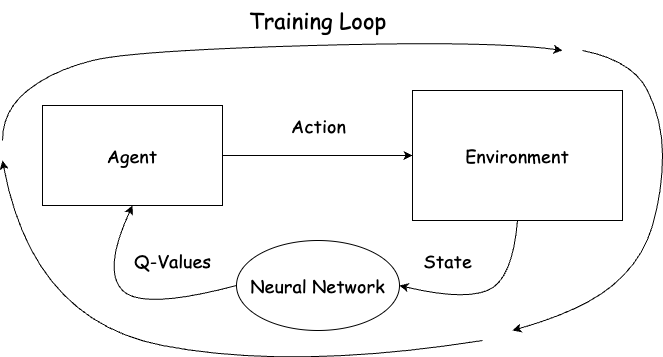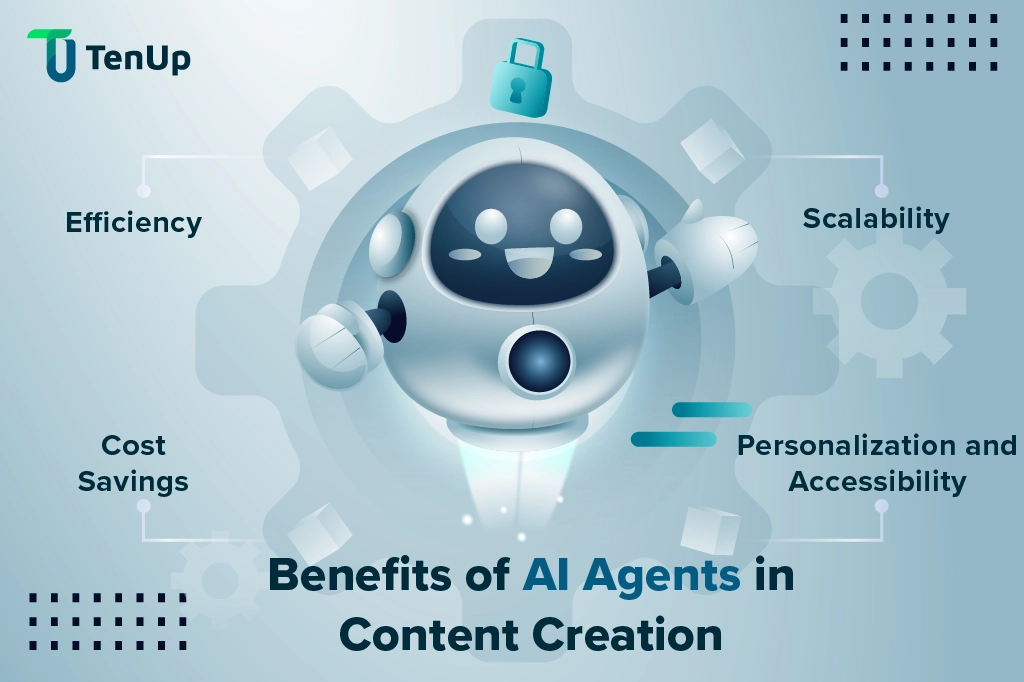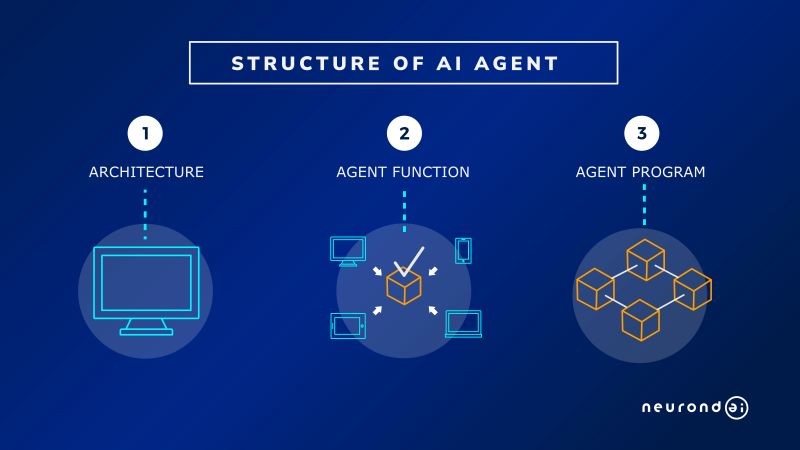Top Strategies To Picking An AI Agent Site For Business
Wiki Article
Ten Ways That Businesses Can Utilize Ai Agents To Reduce The Manual Errors In Financial Operations.
Here are 10 ways to use AI agents in your business to reduce the number of errors that you make manually.
1. Automate Data Entry
AI eliminates data entry errors by:
Utilizing OCR (Optical Character Recognition) and NLP (Natural Language Processing) to extract information from receipts, invoices and financial documents.
Data synchronization directly to financial systems, which eliminates manual input.
2. Smart Validation Rules
AI ensures data accuracy by:
Cross-referencing inputs based on predefined criteria, historical data or external sources.
Flagging errors like mismatched totals duplicate entries, or invalid formats in real time.
3. Use real-time anomaly detection
AI identifies discrepancies by:
Be aware of your financial transactions and be on the lookout for unusual patterns.
Informing the user of possible errors or fraud before it becomes a problem.
4. Standardize Financial Processes
AI assures consistency:
Automate repetitive tasks, like invoice generation or tax calculations, as well as journal entries.
Reduce the variability in manual processing among teams.
5. Predictive Analytics
AI minimizes forecasting errors by:
Analyzing historic trends and real time data will provide accurate cash-flow, revenue, and expenses forecasts.
Identifying areas susceptible to inconsistencies and then recommending correction.
6. Automate Reconciliation Processes
AI improves accuracy of account reconciliation.
Automatic match of transactions across ledgers. Invoices and bank statements.
The ability to highlight items that aren't identical will allow you to pinpoint the issue faster.
7. Deploy Intelligent Approval Workflows
AI reduces human oversight errors by:
Financial approvals are routed according to pre-configured criteria.
Make sure that the transaction is in compliance with criteria before it is advanced through the workflow.
8. Conduct regular audits of data
AI simplifies audits by:
Monitoring and verifying daily financial records to ensure that they're compliant with regulations.
Auditable reports that provide a detailed record of all adjustments and modifications.
9. Integrate AI with Existing Financial Systems
AI reduces integration errors by:
Data can be synchronized seamlessly between ERP, accounting, and CRM platforms.
Consolidating data, and avoiding data silos.
10. Training for AI Effectiveness
AI tools work best when utilized by educated users.
The employees must be taught in the ways in which AI tools can be used effectively, and the insights generated by AI.
Encourage AI accuracy and oversee crucial decisions.
These strategies enable businesses to minimize the number of manual errors, increase the accuracy of their operations, and concentrate resources on strategic financial activities. View the top rated AI agent for Ticket Reopening Monitoring for blog recommendations including AI agent for knowledge base management, AI agent for customer support operations, AI agent for purchase order compliance, AI agent for customer feedback collection, AI agent for market research summarization, AI agent for witness list creation, AI agent for ticket reopening monitoring, AI agent for invoice adjustment requests, AI agent for payment status update, AI agent for expense reporting and more.

Businesses Can Accelerate Transaction Times By Using Ai Agents.
The 10 following AI agents can assist businesses speed up financial transactions
1. Automating Data Collection and Processing
AI speed up transactions via:
Processing and extraction of transaction information instantly from bank statements, bank receipts, and invoices.
Reduce the time taken by manually entering data or verifying.
2. Real-Time Payment Process
AI allows faster payment processing by:
Integrating payment gateways with the ability to make transactions available in real-time.
Automating the routing of payments to the appropriate accounts or vendors.
3. Intelligent Approval Workflows
AI simplifies approvals:
Automate routing using rules and thresholds.
Notifying the approvers of contextual information can speed up decision-making.
4. Optimizing Reconciliation
AI accelerates Account Reconciliation by:
Automatically making sure that transactions are matched across ledgers, bank statements and payments records.
AI-driven advice can help you resolve discrepancies quicker.
5. Predictive Cash Analysis of Flow
AI enhances cash flow through:
Predicting cash flows and optimising distribution of funds.
Prioritizing payments to avoid delays in critical payments.
6. Dynamic Fraud Detection
AI guarantees secure, quick processing via:
Real-time detection of transactions that are suspicious.
Approving legitimate transactions faster by reducing manual reviews.
7. Reducing Redundant Steps
AI reduces bottlenecks through:
Remove redundant steps from financial workflows.
Reduce the complexity of multi-step processes such as international transfers or transactions.
8. Smart Dispute Resolution
AI accelerates issue resolution through:
Finding the root cause of errors and disputes in transactions.
Corrective actions can be identified and automated to reduce interruptions.
9. Enhancing the customer and vendor interaction
AI improves collaboration by:
Automated notification of statuses of transactions to both vendors and customers.
AI chatbots provide instant updates and are able to answer questions immediately.
10. Integration with Financial Ecosystems
AI enhances transaction processing by
Eliminate data silos by seamlessly synching your ERP, CRM or accounting software.
Automating the financial workflow from start to end for a faster finalization.
Utilizing AI agents, businesses can significantly reduce the time it takes to complete transactions increase efficiency, enhance the speed and accuracy of their financial processes. Take a look at the most popular AI agent for License Management for more guide including AI agent for contracts, AI agent for supplier engagement, AI agent for customer service, AI agent for witness list creation, AI agent for social media sentiment analysis, AI agent for customer service, AI agent for billing compliance management, AI agent for litigation support, AI agent for customer service surveys, AI agent for refund processing and more.

Ai Agents Can Assist Businesses Comply With Regulations And Compliance.
Here are 10 ways businesses can use AI agents to comply with regulations and compliance in the financial sector:
1. Automating Regulatory Compliance
AI agents streamline reporting by:
Automatically create the compliance reports required by regulatory bodies.
In ensuring that all documents required are promptly filed, the chance of being fined due to late filings and non-compliance is minimized.
2. Real-time monitoring and analysis of transactions
AI ensures compliance with anti-money-laundering (AML) and Know-Your-Customer (KYC), by:
Continuel monitoring of financial transactions to detect suspicious activities.
Flagging transactions which may be in violation of compliance rules like large or irregular payments or cross-border transactions requiring additional investigation.
3. Automated audits and validation of data
AI agents aid in audits.
Perform automated checks in order to ensure the compliance of internal policies and external regulations.
Verify accuracy and completeness in the financial information. Be aware of any mistakes, discrepancies or other problems that could impact compliance.
4. Monitoring Data Security and Privacy
AI can help meet data protection regulations (e.g., GDPR) by:
The encryption of sensitive transaction and customer information ensures they are securely saved and transferred.
Automatically managing consent preference to ensure that customer's personal data are only used according to the legal requirements.
5. AI Fraud Detection
AI helps in preventing fraud through:
Analyze transaction patterns continuously for suspicious transactions and fraud which may violate the financial regulations.
Machine-learning algorithms are used to identify possible fraud risks and recognize them, minimizing violations of the fiscal or legal requirements.
6. Changes to the Regulatory Framework
AI can keep businesses up-to-date through:
Monitoring changes to financial regulations including the tax laws industry standards, tax laws, and reporting obligations.
Automated updates of internal systems and procedures in order to stay compliant to regulatory changes.
7. KYC (Know Your Customer) AML Compliance
AI aids in compliance:
Automating the identification of customers and verification procedure, ensuring that businesses follow KYC requirements.
Examining client information to identify money laundering through comparing the behaviors with risk profiles.
8. Risk Assessment and management
AI increases compliance through:
Continuously reviewing compliance risks and making predictions about them by analyzing historical data and financial transactions.
Recommending specific actions to reduce identified risks and to ensure compliance with the regulatory framework.
9. Contract and Document Analyses
AI improves compliance through:
Making use of natural processing of languages (NLP) to analyze contracts agreements, contracts, and other legal documents for conformity with the regulations.
Automatically identifying clauses or terms that could be in be in conflict with the law, helping businesses avoid legal violations.
10. Tax Compliance Software for Tax Compliance
AI helps tax compliance by:
Automating the calculation and filing of tax returns ensures compliance with the tax laws of firms and helps them comply with deadlines.
Analyzing data from transactions to find tax deductions, exemptions or other possibilities to avoid mistakes that could result in penalties.
Utilizing AI agents in these areas, organizations can ensure strict compliance with regulations, reduce the risk of errors or omissions, as well as stay ahead of changes to regulations. AI's ability to automate, track, and change to meet the demands of changing times is an essential instrument to ensure compliance with regulatory requirements in the financial sector. Have a look at the pro AI agent for Supplier Relationship Management for more tips including AI agent for invoice adjustment requests, AI agent for tax management, AI agent for tax management, AI agent for contract management, AI agent for it support, AI agent for invoice matching, AI agent for prospect segmentation, AI agent for supplier relationship management, AI agent for customer inquiries, AI agent for service inquiry follow-up and more.
